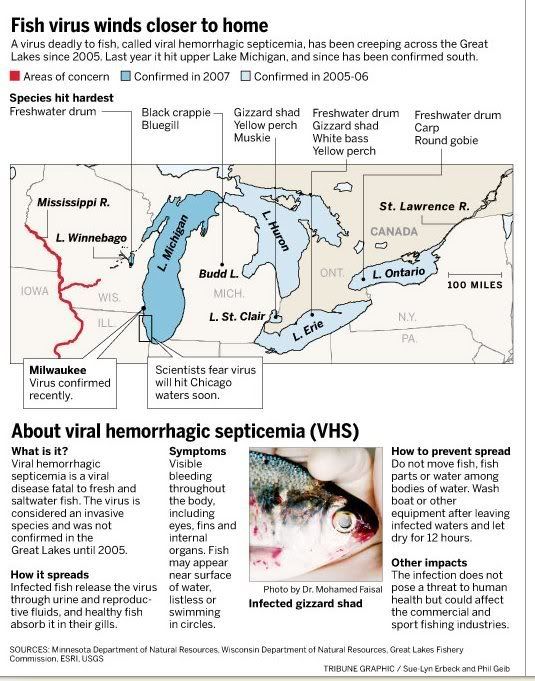 (Click photo for full-size)
(Click photo for full-size)When thousands of bloody, hemorrhaging fish recently turned up on the Lake Michigan shore south of Milwaukee, it confirmed the worst fears of scientists worried that an Ebola-like virus stalking Great Lakes fish would strike closer to Chicago.
Unlike many other diseases that tend to hit one or two types of fish, this viral strain has led to large fish kills involving more than 30 species, including valuable sport fish such as salmon, trout, walleye, muskie, bass and perch.
The infection, called viral hemorrhagic septicemia or VHS, doesn't threaten human health but could be devastating to the $4 billion commercial and sport fishing industry in the Great Lakes.
Viral hemorrhagic septicemia is an invasive species. The virus tends to be more destructive and pervasive here than in the lakes and rivers of Europe where it originated, but it's difficult to predict how it will affect Great Lakes species in the long term.
Some fish can resist the virus, but they can still spread it through urine and other fluids. Those that get sick become listless and ultimately bleed to death.
